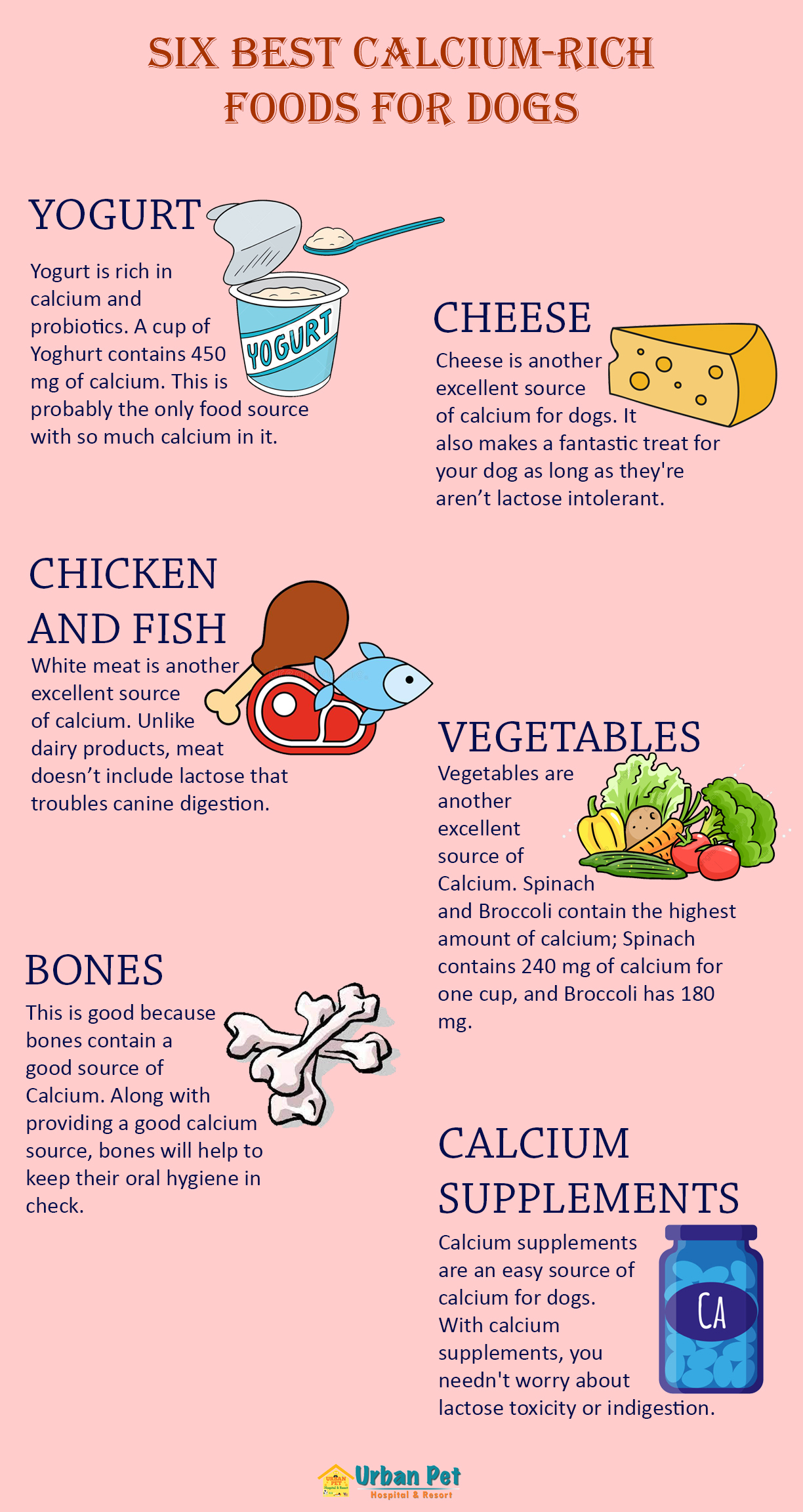Calcium is an essential micromineral that helps to build and maintain strong bones.
Did you know, both humans and dogs need calcium to maintain strong bones, hearts, muscles, and nerves?
Yes, calcium deficiency can have substantial adverse effects on your pets’ growth.
Why is calcium essential for dogs?
Some studies suggest that calcium, along with vitamin D, may have benefits beyond bone health: perhaps protecting against cancer, diabetes, and high blood pressure.
A too little calcium or Hypocalcemia condition is called when the calcium level in the blood is lower than usual.
Hypocalcemia in dogs is associated with severe disorders, including antifreeze poisoning, inflammation of the pancreas, kidney failure, and parathyroid gland failure.
You can figure hypocalcemia by analyzing the telltale signs, including muscle twitching, loss of appetite, weakness, and listlessness. In some cases, it can cause convulsions or seizures.
How does a healthy animal control calcium levels?
The parathyroid glands embedded in the thyroid gland control the Calcium levels. The glands are responsible for monitoring the level of calcium in the blood. When calcium levels are too low, the glands release a hormone called parathyroid hormone (PTH), which acts to return calcium levels to normal.
Diagnosing and treating Hypocalcemia
To diagnose Hypocalcemia, your dog requires a routine blood test to reveal low total calcium. If the repeated value for total calcium is still low, then doing an ionized calcium test is recommended. It gives the definitive measure of calcium levels.
Your vet will further test the condition of other vital organs to assess the damage before administering the needed medical help.
If you're wondering, yes, hypocalcemia can be managed with a medication called Calcitriol plus nutritional supplements containing Vitamin D and Calcium.
However, it would be best if you were wary about feeding excess calcium to your dog. A buildup of excess calcium in the blood leads to hypercalcemia which can cause various physical and mental ailments.
Six best Calcium-Rich Foods for Dogs
Here are the best sources of calcium for your dogs.
Yogurt

Yogurt is rich in calcium and probiotics. The milk product made from bacterial fermentation is a healthier calcium choice for dogs. However, many dogs have trouble digesting yogurt because of lactose contents. Consider talking to your vet before adding yogurt to your dog's meal plan.
A cup of Yoghurt contains 450 mg of calcium. This is probably the only food source with so much calcium in it.
Consider adding yogurt to your canine's food regularly. Generally, one to two teaspoons of yogurt a day is a fair amount to give your dog.
In case your dog is a bit overweight, you can pick low-fat yogurt from the store. Also, avoid flavored yogurt that can be toxic to some dogs.
Cheese

Cheese is another excellent source of calcium for dogs. It also makes a fantastic treat for your dog as long as they're aren’t lactose intolerant. Lactose can upset your dog’s digestion, so be wary about consulting a vet before giving cheese to your dog.
You can give them any available cheese, including cheddar, mozzarella, and cottage cheese. Because cheese is as fattening as it is tasty, moderation is key. Try choosing a cheese type that is low in fats.
An ounce of hard cheeses, like cheddar or jack, contains 200 mg of calcium. Only add a slice of cheese, broken into pieces, to their meal.
Avoid feeding them cheese mixed with herbs or other products as it can lead to health complications.
Chicken and Fish

White meat is another excellent source of calcium. Unlike dairy products, meat doesn’t include lactose that troubles canine digestion.
Chicken and fish is also an excellent protein source. According to veterinarians, a daily dog meal should include at least 30% protein.
Chicken, Salmon, trout, mackerel, and sardines are popular meat choices for dogs. Each portion could content from 170 mg to 370 mg of calcium. However, it is advised that you cook the fish well before offering it to your pet.
Be wary about feeding seafood to your dog as it may contain mercury. Raw tuna isn’t toxic to dogs, but you may want to feed them other types of fishes that don’t contain mercury, such as salmon, herring, flounder, and Wild Menhaden.
Vegetables

Vegetables are another excellent source of Calcium. Some vegetables are high in calcium, including Acorn squash, Argula, Bok Choy, Broccoli, Chard, Chicory, Collard greens, Corn, Dandelion, Kale, Mustard greens, potato, Spinach, and Turnips.
Spinach and Broccoli contain the highest amount of calcium; Spinach contains 240 mg of calcium for one cup, and Broccoli has 180 mg.
Not every dog will love to eat these vegetables, so you need to be creative with them. Cut veggies into bite-size pieces and incorporate them into your dog’s meal that contains meat or snacks.
Bones for dogs

If you’re a dog owner, you’d know that all dogs love to chew on bones. This is good because bones contain a good source of Calcium. Along with providing a good calcium source, bones will help to keep their oral hygiene in check.
Be wary about feeding them cooked bones that can easily crack into tiny shards. Although cooked bones are best for digestion, your dog can often chock on them.
A safe way to add bone to your dog’s meal is to ground it into a powder and then incorporate them into the dog’s food. You can also buy bone meal supplements for dogs.
Dogs love to keep chewing on bones, and they often spend much time doing it, so it’s a good idea to occasionally throw a large bone at them.
Calcium Supplements

Calcium supplements are an easy source of calcium for dogs. With calcium supplements, you needn't worry about lactose toxicity or indigestion.
Calcium pills for dogs take the guesswork out of giving your dog the right amount of calcium to boost their immune system and bones.
Consider mixing broken calcium pills or grounded calcium pills into dog food before providing it to them. Be wary about providing human calcium to dogs because it is formulated for humans.
Check out this infographic for more information.

Talk to your vet before providing adding a new source of calcium to dog food. A vet can properly diagnose their condition to advise if you should limit or increase their calcium intake.
Get in touch with Urban Pet Hospital & Resort, the best pet hospital in Urbandale, to learn more about preventing hypocalcemia in dogs.